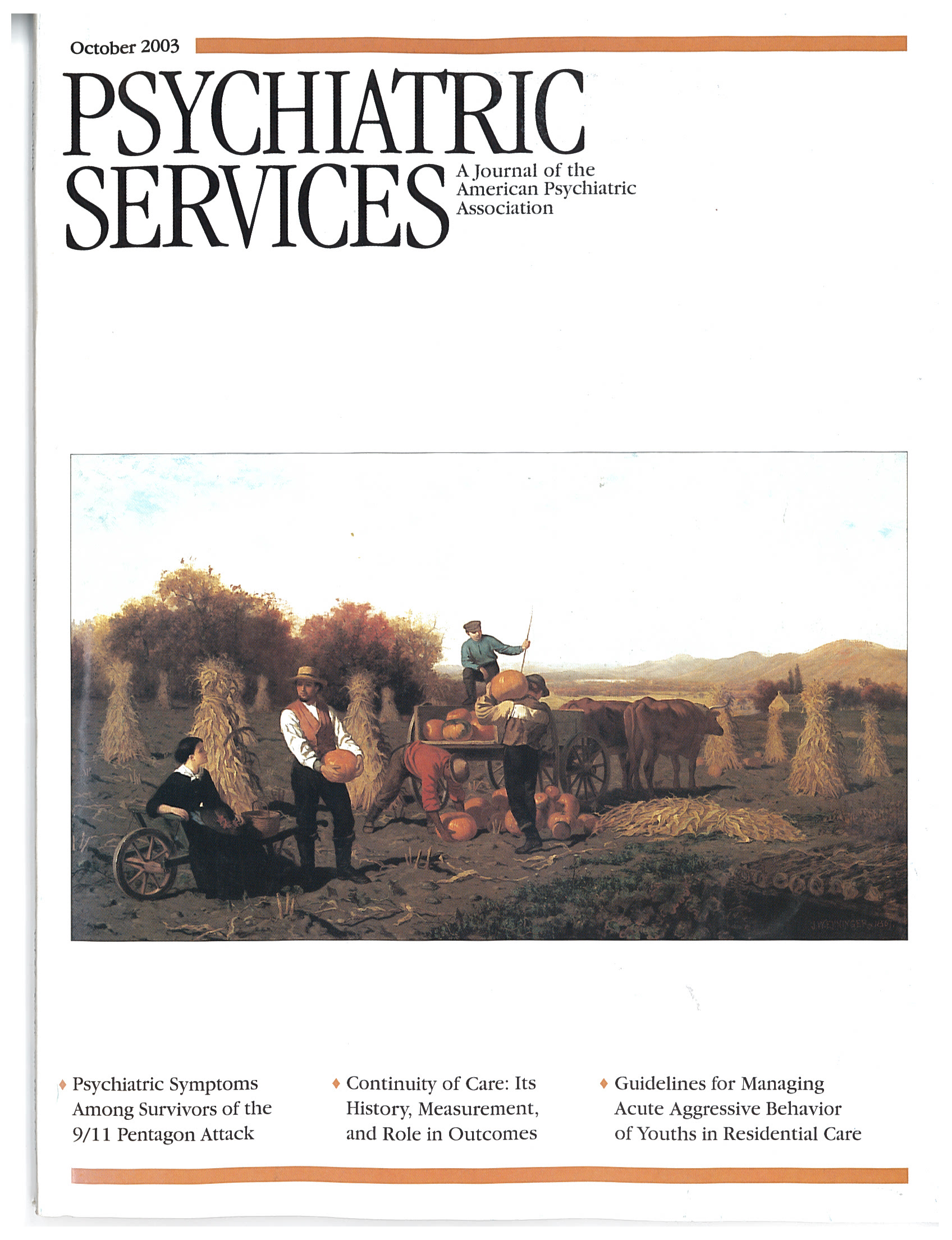Dangerous Minds: Political Psychiatry in China Today and Its Origin in the Mao Era
Allegations of psychiatric abuse in China have agitated many in the psychiatric and human rights communities during the past few years, undoubtedly sensitized by such allegations in relation to the former Soviet Union. Human Rights Watch and Geneva Initiative on Psychiatry have published a book titled Dangerous Minds: Political Psychiatry in China Today and its Origins in the Mao Era. Included in the book is a well-documented, previously published article called "Judicial Psychiatry in China and its Political Abuses," by Robin Munro (1), which forms a major portion of the book.
Munro points out that the recent attention of the psychiatric and human rights community to violations of psychiatry since 1999 was due to the forcible detention of practitioners of the Falun Gong, a spiritual community, in psychiatric hospitals after their arrest on criminal charges. It is alleged that many of them had no psychiatric illness.
It turns out, according to Munro, that the forcible detention of political dissidents, whistleblowers, and religious groups has a long history in China. It reached its apogee during the period of the Cultural Revolution, between 1966 and 1976, then under the leadership of Mao Tse-Tung and the "Gang of Four," which instituted a very harsh and repressive regime. No opposition or deviance in practice or in thought was tolerated. Many of the dissidents were committed to psychiatric hospitals, particularly hospitals that were under the jurisdiction of the police, known as Ankang hospitals, where the commitment was made by forensic psychiatrists. It is noteworthy that the rationale of the forensic psychiatrists during the Maoist era was that dissidents' mental problems were caused by "incorrect or deviant thinking"—that is, these individuals were said to be possessed by bourgeois selfish ideas and personal concerns, which caused their mental illness.
After the death of Mao, the psychiatric community moved toward ideas and practices that were more in line with those of the West, and some courageous psychiatrists denounced the practice of committing political dissidents to psychiatric hospitals. Illustrative of this emergence of new ideas was the act of the Chinese Psychiatric Association of removing homosexuality from the official classification of mental illness.
In the late 1990s, when the Falun Gong movement escalated in numbers, reaching 70 million, the regime felt that it was necessary to curb this movement as a dangerous criminal group that was seeking to undermine the government. Various means of repression were used: jails, labor camps, and commitment to psychiatric hospitals by forensic psychiatrists. To justify the commitment, a new notion developed, reminiscent of that practiced during the Cultural Revolution—namely, the notion that dangerous ideas could produce mental illness, which was described as "evil, cult-induced mental disorder." This notion became the rationale of the confinement of the Falun Gong.
Dangerous Minds serves as an important presentation of Chinese psychiatry and of international concepts of the ethics of psychiatric practice. Yet Munro's original monograph has been subject to negative criticism, although others support him. Noteworthy is the criticism by Professor Alan A. Stone of Harvard, who vigorously disputes the substance and accuracy of Munro's report (2).
However, all parties agree with the strongest recommendation of this valuable reference book—that a rigorous inspection by outside experts with complete access to all psychiatric patients, including those in the Ankang hospitals, is mandatory. The World Psychiatric Association made such a request at its meeting in Yokohama. One hopes that this request will be fulfilled.
Dr. Freedman is chairman and professor of psychiatry, emeritus, at New York Medical College in Valhalla.
1. Munro R: Judicial psychiatry in China and its political abuses. Columbia Journal of Asian Law 14:1–128, 2000Google Scholar
2. Stone AA: Psychiatrists on the side of the angels: the Falun Gong and Soviet Jewry. Journal of the American Academy of Psychiatry and the Law 30:107–111, 2002Medline, Google Scholar



